#slumlordent
Text
they just don't put gargoyles on roofs like they used to. buildings are so swagless these days
31K notes
·
View notes
Text
you gotta wonder what kind of landlord louis was though. complain about a leak and next thing you're being taken out by his twink boyfriend
#diversity win! your slumlords are queer men of colour#then again armand was very concerned about the floor slanting slightly#he'd be ripping the floorboards out until you beg him to leave#interview with the vampire#iwtv#armand#louis de pointe du lac
363 notes
·
View notes
Text
How finfluencers destroyed the housing and lives of thousands of people
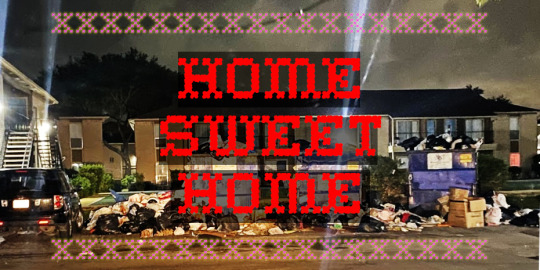
For the rest of May, my bestselling solarpunk utopian novel THE LOST CAUSE (2023) is available as a $2.99, DRM-free ebook!

The crash of 2008 imparted many lessons to those of us who were only dimly aware of finance, especially the problems of complexity as a way of disguising fraud and recklessness. That was really the first lesson of 2008: "financial engineering" is mostly a way of obscuring crime behind a screen of technical jargon.
This is a vital principle to keep in mind, because obscenely well-resourced "financial engineers" are on a tireless, perennial search for opportunities to disguise fraud as innovation. As Riley Quinn says, "Any time you hear 'fintech,' substitute 'unlicensed bank'":
https://pluralistic.net/2023/05/01/usury/#tech-exceptionalism
But there's another important lesson to learn from the 2008 disaster, a lesson that's as old as the South Seas Bubble: "leverage" (that is, debt) is a force multiplier for fraud. Easy credit for financial speculation turns local scams into regional crime waves; it turns regional crime into national crises; it turns national crises into destabilizing global meltdowns.
When financial speculators have easy access to credit, they "lever up" their wagers. A speculator buys your house and uses it for collateral for a loan to buy another house, then they make a bet using that house as collateral and buy a third house, and so on. This is an obviously terrible practice and lenders who extend credit on this basis end up riddling the real economy with rot – a single default in the chain can ripple up and down it and take down a whole neighborhood, town or city. Any time you see this behavior in debt markets, you should batten your hatches for the coming collapse. Unsurprisingly, this is very common in crypto speculation, where it's obscured behind the bland, unpronounceable euphemism of "re-hypothecation":
https://www.coindesk.com/consensus-magazine/2023/05/10/rehypothecation-may-be-common-in-traditional-finance-but-it-will-never-work-with-bitcoin/
Loose credit markets often originate with central banks. The dogma that holds that the only role the government has to play in tuning the economy is in setting interest rates at the Fed means the answer to a cooling economy is cranking down the prime rate, meaning that everyone earns less money on their savings and are therefore incentivized to go and risk their retirement playing at Wall Street's casino.
The "zero interest rate policy" shows what happens when this tactic is carried out for long enough. When the economy is built upon mountains of low-interest debt, when every business, every stick of physical plant, every car and every home is leveraged to the brim and cross-collateralized with one another, central bankers have to keep interest rates low. Raising them, even a little, could trigger waves of defaults and blow up the whole economy.
Holding interest rates at zero – or even flipping them to negative, so that your savings lose value every day you refuse to flush them into the finance casino – results in still more reckless betting, and that results in even more risk, which makes it even harder to put interest rates back up again.
This is a morally and economically complicated phenomenon. On the one hand, when the government provides risk-free bonds to investors (that is, when the Fed rate is over 0%), they're providing "universal basic income for people with money." If you have money, you can park it in T-Bills (Treasury bonds) and the US government will give you more money:
https://realprogressives.org/mmp-blog-34-responses/
On the other hand, while T-Bills exist and are foundational to the borrowing picture for speculators, ZIRP creates free debt for people with money – it allows for ever-greater, ever-deadlier forms of leverage, with ever-worsening consequences for turning off the tap. As 2008 forcibly reminded us, the vast mountains of complex derivatives and other forms of exotic debt only seems like an abstraction. In reality, these exotic financial instruments are directly tethered to real things in the real economy, and when the faery gold disappears, it takes down your home, your job, your community center, your schools, and your whole country's access to cancer medication:
https://www.theguardian.com/world/2012/jun/08/greek-drug-shortage-worsens
Being a billionaire automatically lowers your IQ by 30 points, as you are insulated from the consequences of your follies, lapses, prejudices and superstitions. As @[email protected] says, Elon Musk is what Howard Hughes would have turned into if he hadn't been a recluse:
https://mamot.fr/@[email protected]/112457199729198644
The same goes for financiers during periods of loose credit. Loose Fed money created an "everything bubble" that saw the prices of every asset explode, from housing to stocks, from wine to baseball cards. When every bet pays off, you win the game by betting on everything:
https://en.wikipedia.org/wiki/Everything_bubble
That meant that the ZIRPocene was an era in which ever-stupider people were given ever-larger sums of money to gamble with. This was the golden age of the "finfluencer" – a Tiktok dolt with a surefire way for you to get rich by making reckless bets that endanger the livelihoods, homes and wellbeing of your neighbors.
Finfluencers are dolts, but they're also dangerous. Writing for The American Prospect, the always-amazing Maureen Tkacik describes how a small clutch of passive-income-brainworm gurus created a financial weapon of mass destruction, buying swathes of apartment buildings and then destroying them, ruining the lives of their tenants, and their investors:
https://prospect.org/infrastructure/housing/2024-05-22-hell-underwater-landlord/
Tcacik's main characters are Matt Picheny, Brent Ritchie and Koteswar “Jay” Gajavelli, who ran a scheme to flip apartment buildings, primarily in Houston, America's fastest growing metro, which also boasts some of America's weakest protections for tenants. These finance bros worked through Gajavelli's company Applesway Investment Group, which levered up his investors' money with massive loans from Arbor Realty Trust, who also originated loans to many other speculators and flippers.
For investors, the scheme was a classic heads-I-win/tails-you-lose: Gajavelli paid himself a percentage of the price of every building he bought, a percentage of monthly rental income, and a percentage of the resale price. This is typical of the "syndicating" sector, which raised $111 billion on this basis:
https://www.wsj.com/articles/a-housing-bust-comes-for-thousands-of-small-time-investors-3934beb3
Gajavelli and co bought up whole swathes of Houston and other cities, apartment blocks both modest and luxurious, including buildings that had already been looted by previous speculators. As interest rates crept up and the payments for the adjustable-rate loans supporting these investments exploded, Gajavell's Applesway and its subsidiary LLCs started to stiff their suppliers. Garbage collection dwindled, then ceased. Water outages became common – first weekly, then daily. Community rooms and pools shuttered. Lawns grew to waist-high gardens of weeds, fouled with mounds of fossil dogshit. Crime ran rampant, including murders. Buildings filled with rats and bedbugs. Ceilings caved in. Toilets backed up. Hallways filled with raw sewage:
https://pluralistic.net/timberridge
Meanwhile, the value of these buildings was plummeting, and not just because of their terrible condition – the whole market was cooling off, in part thanks to those same interest-rate hikes. Because the loans were daisy-chained, problems with a single building threatened every building in the portfolio – and there were problems with a lot more than one building.
This ruination wasn't limited to Gajavelli's holdings. Arbor lent to multiple finfluencer grifters, providing the leverage for every Tiktok dolt to ruin a neighborhood of their choosing. Arbor's founder, the "flamboyant" Ivan Kaufman, is associated with a long list of bizarre pop-culture and financial freak incidents. These have somehow eclipsed his scandals, involving – you guessed it – buying up apartment buildings and turning them into dangerous slums. Two of his buildings in Hyattsville, MD accumulated 2,162 violations in less than three years.
Arbor graduated from owning slums to creating them, lending out money to grifters via a "crowdfunding" platform that rooked retail investors into the scam, taking advantage of Obama-era deregulation of "qualified investor" restrictions to sucker unsophisticated savers into handing over money that was funneled to dolts like Gajavelli. Arbor ran the loosest book in town, originating mortgages that wouldn't pass the (relatively lax) criteria of Fannie Mae and Freddie Mac. This created an ever-enlarging pool of apartments run by dolts, without the benefit of federal insurance. As one short-seller's report on Arbor put it, they were the origin of an epidemic of "Slumlord Millionaires":
https://viceroyresearch.org/wp-content/uploads/2023/11/Arbor-Slumlord-Millionaires-Jan-8-2023.pdf
The private equity grift is hard to understand from the outside, because it appears that a bunch of sober-sided, responsible institutions lose out big when PE firms default on their loans. But the story of the Slumlord Millionaires shows how such a scam could be durable over such long timescales: remember that the "syndicating" sector pays itself giant amounts of money whether it wins or loses. The consider that they finance this with investor capital from "crowdfunding" platforms that rope in naive investors. The owners of these crowdfunding platforms are conduits for the money to make the loans to make the bets – but it's not their money. Quite the contrary: they get a fee on every loan they originate, and a share of the interest payments, but they're not on the hook for loans that default. Heads they win, tails we lose.
In other words, these crooks are intermediaries – they're platforms. When you're on the customer side of the platform, it's easy to think that your misery benefits the sellers on the platform's other side. For example, it's easy to believe that as your Facebook feed becomes enshittified with ads, that advertisers are the beneficiaries of this enshittification.
But the reason you're seeing so many ads in your feed is that Facebook is also ripping off advertisers: charging them more, spending less to police ad-fraud, being sloppier with ad-targeting. If you're not paying for the product, you're the product. But if you are paying for the product? You're still the product:
https://pluralistic.net/2021/01/04/how-to-truth/#adfraud
In the same way: the private equity slumlord who raises your rent, loads up on junk fees, and lets your building disintegrate into a crime-riddled, sewage-tainted, rat-infested literal pile of garbage is absolutely fucking you over. But they're also fucking over their investors. They didn't buy the building with their own money, so they're not on the hook when it's condemned or when there's a forced sale. They got a share of the initial sale price, they get a percentage of your rental payments, so any upside they miss out on from a successful sale is just a little extra they're not getting. If they squeeze you hard enough, they can probably make up the difference.
The fact that this criminal playbook has wormed its way into every corner of the housing market makes it especially urgent and visible. Housing – shelter – is a human right, and no person can thrive without a stable home. The conversion of housing, from human right to speculative asset, has been a catastrophe:
https://pluralistic.net/2021/06/06/the-rents-too-damned-high/
Of course, that's not the only "asset class" that has been enshittified by private equity looters. They love any kind of business that you must patronize. Capitalists hate capitalism, so they love a captive audience, which is why PE took over your local nursing home and murdered your gran:
https://pluralistic.net/2021/02/23/acceptable-losses/#disposable-olds
Homes are the last asset of the middle class, and the grifter class know it, so they're coming for your house. Willie Sutton robbed banks because "that's where the money is" and We Buy Ugly Houses defrauds your parents out of their family home because that's where their money is:
https://pluralistic.net/2023/05/11/ugly-houses-ugly-truth/#homevestor
The plague of housing speculation isn't a US-only phenomenon. We have allies in Spain who are fighting our Wall Street landlords:
https://pluralistic.net/2021/11/24/no-puedo-pagar-no-pagara/#fuckin-aardvarks
Also in Berlin:
https://pluralistic.net/2021/08/16/die-miete-ist-zu-hoch/#assets-v-human-rights
The fight for decent housing is the fight for a decent world. That's why unions have joined the fight for better, de-financialized housing. When a union member spends two hours commuting every day from a black-mold-filled apartment that costs 50% of their paycheck, they suffer just as surely as if their boss cut their wage:
https://pluralistic.net/2023/12/13/i-want-a-roof-over-my-head/#and-bread-on-the-table
The solutions to our housing crises aren't all that complicated – they just run counter to the interests of speculators and the ruling class. Rent control, which neoliberal economists have long dismissed as an impossible, inevitable disaster, actually works very well:
https://pluralistic.net/2023/05/16/mortgages-are-rent-control/#housing-is-a-human-right-not-an-asset
As does public housing:
https://jacobin.com/2023/10/red-vienna-public-affordable-housing-homelessness-matthew-yglesias
There are ways to have a decent home and a decent life without being burdened with debt, and without being a pawn in someone else's highly leveraged casino bet.

If you'd like an essay-formatted version of this post to read or share, here's a link to it on pluralistic.net, my surveillance-free, ad-free, tracker-free blog:
https://pluralistic.net/2024/05/22/koteswar-jay-gajavelli/#if-you-ever-go-to-houston

Image:
Boy G/Google Maps (modified)
https://pluralistic.net/timberridge
#pluralistic#zirp#weaponized shelter#the rents too damned high#finfluencers#qualified investors#the bezzle#heads i win tails you lose#houston#Brent Ritchie#Matt Picheny#Koteswar Jay Gajavelli#Koteswar Gajavelli#Applesway Investment Group#maureen tkacik#Arbor Realty Trust#MF1 Capital#Benefit Street Partners#bezzle#Swapnil Agarwal#Slumlord Millionaires#KeyCity Capital#Financial Independence University#Elisa Zhang#Lane Kawaoka#Fundamental Advisors#AWC Opportunity Partners#Nitya Capital
263 notes
·
View notes
Text


Skyhold landlord special: your room vs. your ex-gf's new bf's room
#skyhold landlord special#solas is a slumlord#slap some flat white paint right over those hinges#get your tenants to renovate your property for you#dragon age#dragon age inquisition#solas#landlord solas#skyhold#cullen rutherford#commander cullen#cullavellan#cullen x lavellan
49 notes
·
View notes
Photo

Ogre Slumlord
"'Rat-infested' sounds so negative. I prefer 'rat-friendly.'"
Artist: Woonak
TCG Player Link
Scryfall Link
EDHREC Link
61 notes
·
View notes
Text
#class war#class warfare#classism#rent strike#landlords#affordable housing#slumlords#dream unlimited
211 notes
·
View notes
Text
Woke up to water shut off and our slumlord of landlord just says...okay. If anyone in Indiana knows if a way to show horn this woman into actually DOING SOMETHING HERE I'm all ears this bitch is out of control.
#║▌ in my defense i was probably stoned. // ooc.#and no... there was no notice about it being shut off#this woman is testing my patience let me tell ya#slumlord tw#renting problems tw#tbd
7 notes
·
View notes
Text
at my birthday dinner this year my gran told me to stop posting on facebook about how landlords, real estate management corps, and house flippers are leeching the lifeblood out of working class america. I laughed and said no. It happens to be an issue that affects me personally, seeing as I'm currently forced to live in a moldy shed in some dude's back yard despite having a salaried government job and a college degree and a side hustle.
Still beats last year's birthday dinner where she interrogated me about being queer and asked why this kept happening to her like it was some kind of curse.
#personal problems#birthday dinner#things gran says#save me from my family#things that happened#ALAB#housing crisis#she's probably just scared I'll piss off my rich slumlord uncles#but I won't because they don't care what anyone thinks—they're too rich
10 notes
·
View notes
Text
Exclusive: Feds and State AG Investigate an Alleged Human Trafficking Empire Run in Springfield, Ohio, for Years by ‘King George’
3 notes
·
View notes
Text
death to all landlords
#ethan speaks#fucking slumlords#you should be paying me to live in your shithole#get out of my house
11 notes
·
View notes
Text
super rich people and corporate landlords etc. but tbh a lot of the housing problem is normal esque "mom and pop" 🤮 people who go into crazy debt to buy houses and live off of rental income from rooming houses etc. and i hope all those people default on their mortgages and then i think they should be shot
6 notes
·
View notes
Photo
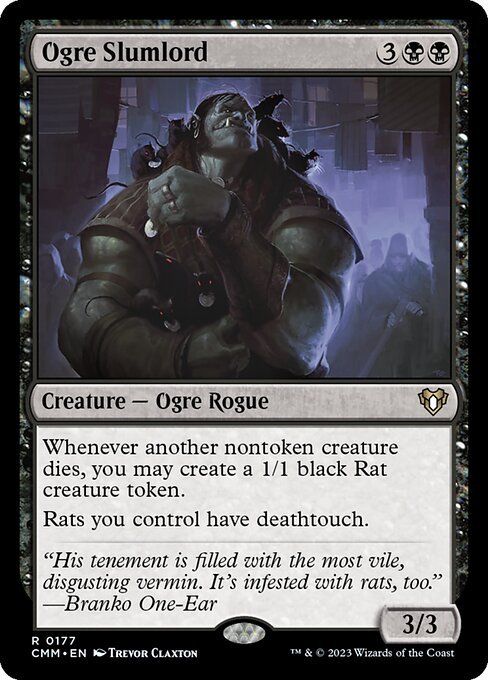
Ogre Slumlord
"His tenement is filled with the most vile, disgusting vermin. It's infested with rats, too." —Branko One-Ear
Artist: Trevor Claxton
TCG Player Link
Scryfall Link
EDHREC Link
#mtg#magic the gathering#tcg#$0.35#trevor claxton#ogre slumlord#commander masters#creature#ogre#rogue
34 notes
·
View notes
Text
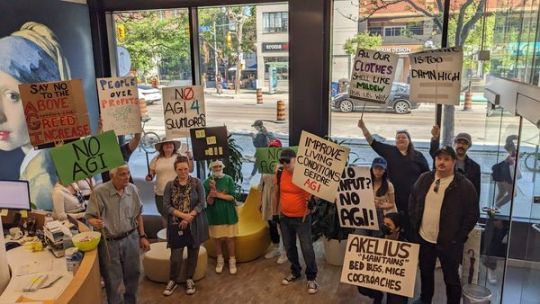
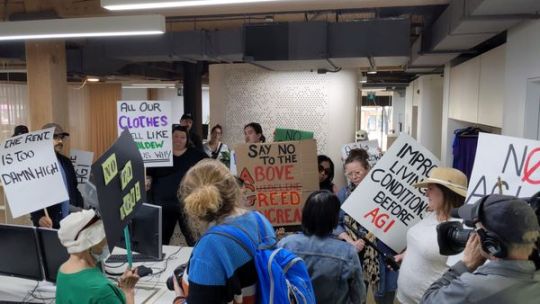
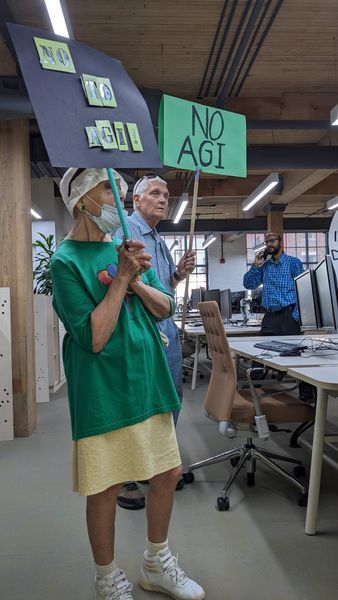
(via Parkdale Organize): "Our neighbours at 77 Spencer continue to demand that Akelius Canada withdraw the above guideline rent increase at their building. Today fellow Akelius tenants at 109 Indian Road, who also face an AGI at their building, joined them for a loud and disruptive protest at the Akelius head office. Rather than meet tenants' demands, Akelius had Toronto Police remove them from their office."
48 notes
·
View notes
Text
Let's hope I don't die from the poor conditions of this house before I can move somewhere else, which I'm gonna have to do anyway with (now less than) thirty days notice. Tell me again how much value landlords provide to the neighborhood?
#thinking of making a big SLUMLORD sign to hang in the front but i think I'll need all the cardboard boxes and time for things like packing#ugh. hate having to do this again
5 notes
·
View notes
Photo
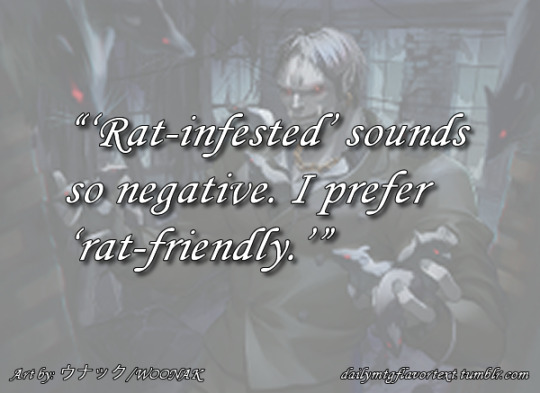
"‘Rat-infested' sounds so negative. I prefer ‘rat-friendly.'"
-Ogre Slumlord
75 notes
·
View notes
Text

day 2 of pride month was the wedding banquet! I would say this movie had no business being this good but it was directed by ang lee so of course it does. lots of luxurious long takes, beautiful shots of doorframes and the backs of people's heads and the like. if I close my eyes and pretend the main character isn't a landlord it's fine. went from being happy-sad to excruciatingly happy-sad to excruciatingly sad and back to happy-sad again. I want to say the moment I knew they had their hooks in me was when they did the whole reprise of "wai-tung uses his fancy new 90s cell phone to call his boyfriend on their landline except originally it was a joke and now they're hiding from his parents in their own house & they can't sleep in the same room together." cried a lot of big girl tears over this one! also the first film of the month to feature Food And Love Same Thing etc. but certainly not the last
#pride month watchlist 2023#wai-tung said I'm not a regular slumlord I'm a cool slumlord. here's a new air conditioner and your rent is never
25 notes
·
View notes